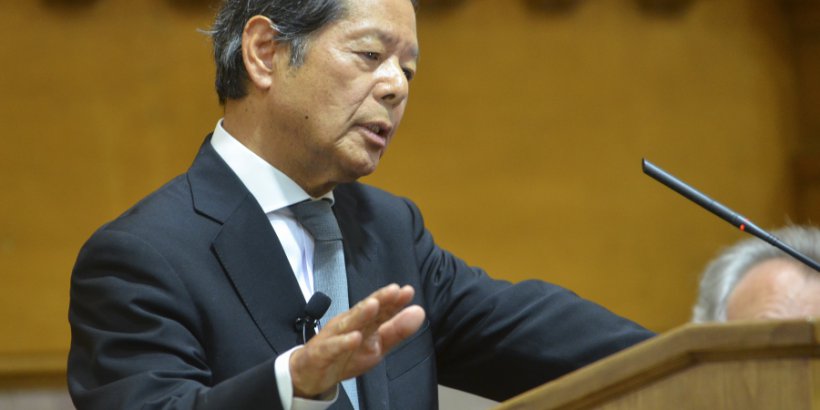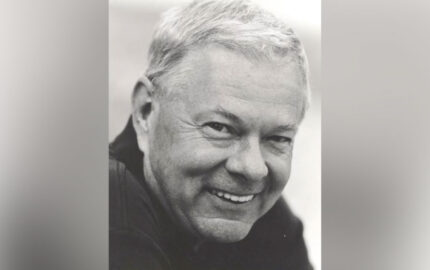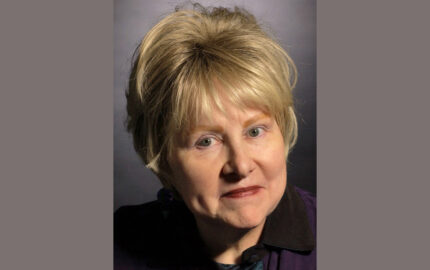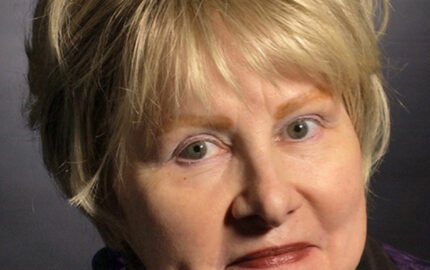Japanese journalist Yoichi Funabashi, NF ’76, the former editor-in-chief of Asahi Shimbun, has won the 2015 Shorenstein Journalism Award. Presented annually by the Walter H. Shorenstein Asia-Pacific Research Center at Stanford University, the award honors a journalist not only for a distinguished body of work, but also for the particular way that work has helped American readers to understand the complexities of Asia.
During a panel discussion at the award ceremony titled, “Continuity and Change in the U.S.-Japan Alliance, Funabashi noted that China poses the most strategic challenge for the current U.S.-Japan relationship. Funabashi was joined on the panel by Susan Chira, a deputy executive editor at The New York Times, and Michael Armacost, a Stanford distinguished fellow and former U.S. ambassador to Japan. Daniel Sneider, associate director for research at Shorenstein APARC, moderated the discussion.
The full text of his acceptance speech is included below.
[hide]
by Yoichi Funabashi
First and foremost, I would like to express my deepest gratitude to all the members of the Shorenstein award jury and acknowledge those jury members who are here with us this evening – Susan Chira, Donald Emmerson, Daniel Sneider and Orville Schell.
Ladies and gentlemen, friends and colleagues. I cannot put into words how much of an honor it is to receive such a prestigious award. I don’t think I will ever forget the moment when I read the letter of congratulations. My first reaction was pure joy and I was eager to share the news with others. The second was more sobering. It hit me that this award also is a sign of my age…
I am thankful for this opportunity to reflect on my journey as a journalist to date, as it has given me chance to look back into the past to see where and what my next mission should be today. I sincerely hope that my remarks may also provide you all with some useful hints.
To be honest, this award came as a surprise. Particularly, as awards for reporting on Asia have typically been for those whom at some point in their careers, had to cover a war. The Boxer Rebellion, Russo-Japanese War, The Siberian Expedition, The Northern Expedition, The Long March, The Second Sino-Japanese War, The Pacific War, The Civil War in China, The Korean War, The Indo-China War, The Vietnam War, The China-Vietnam War, The Cambodian Genocide. I have respected and been a student of the great American journalists who have covered these wars over the years.
To name a few: Edgar Snow, Nim Wales and Agnes Smedley. While I was still at university majoring in Chinese history, I was absorbed in their reporting on China. I read Johnny Apple, Don Oberdorfer and David Halberstam’s reporting on the Vietnam War, and am glad to say that these great journalists were my friends. Though they are no longer with us, their work lives as a continuing source of inspiration.
I cannot pass this opportunity without emphasizing how big an impact David Halberstom in particular had on my career. We first became acquainted when I was a Nieman fellow at Harvard, and I have fond memories of when he invited me to visit Nantucket Island. What I will never forget are the lessons he taught me through his approach to journalism – one that was centrered on the human story and used this as a lens to unpack broader issues of statecraft and society.
My time as a Nieman fellow was formative. Another, key individual was Nieman Foundation Curator, James C. Thomson. I witnessed his dedication to diversity in opening up the program to more minorities and women. I was especially motivated by his ability to collaborate with policymakers and seamlessly operate in different circles.
Another key turning point in my career, was my time as a correspondent in Beijing. It was post the Cultural Revolution decade and the first cohort of foreign correspondents were dispatched. Formidable journalists such as Fox Butterfield, Melinda Liu, Frank Ching, John Roderick and photo journalist Liu Heung Shing were all there. Their enthusiasm and perseverance was infectious and one cannot help but strive to become a better journalist while working alongside them.
I also want to mention how much I admire Nayan Chanda and Orville Schell who are second to none. It is a proud and humbling moment to join this Shorenstein award hall of fame.
Indeed, I have been privileged to be a journalist in an age of peace in Asia for nearly half a century. We can, however, no longer be complacent in assuming that this stability will be passed on to the next generation. Power transitions, maritime disputes and tensions on the Korean Peninsula are real risks. I believe my mission as a journalist is to work to preserve this peace for the future.
In some ways you could say that I have been a war correspondent. Firstly, I have covered economic “wars”. The economic sphere has been turbulent. In the 70s we had the dollar shock and the oil shock. In the 80s, all kinds of trade friction and the Plaza Accord. It is astonishing when you consider that despite the US-Japan Alliance, there has been perennial economic friction between the two, and it worries me that Donald Trump is trying to revive the troubles that we have moved beyond. In the coming years we can expect that America and China will have economic disputes on an even greater scale than what we have seen.
Next, the battle over history is raging more than ever, and it has meant that for many, the war is not yet over. I have tried to cover this sensitive topic and am always astounded by its sheer depth and complexity. I was born in China, and I am a citizen of a nation that has caused so much pain to China and other nations in Asia. I believe that I have been given a calling to contribute, even in some modest way, to reconciliation.
In the early 2000s I collaborated with Richard Solomon and Ezra Vogel on a US Institute of Peace project to examine and encourage reconciliation in the Asia-Pacific. We discovered that the political challenges were far greater than originally expected.
Nationalism and revisionism are rife in East Asia. And I believe that the media is also culpable in inflaming the embers. I wanted to know more about the media’s role. And so, I formed a working group of 20 reporters with Professor Akira Iriye as advisor, to carry out a historical investigation into the Asahi Shimbun’s reporting during the Showa period, spanning 1925-1989.
We were shocked to learn that the nature of Asahi’s reporting changed almost in an instant from advocating liberal internationalist principles, to acquiescence to Imperial Japan. We were able to pinpoint the year and the event to the Mukden Incident of 1931. It was right after this that the Asahi went down without much of a fight. There was no critique or even debate about the Imperial army’s actions. The Asahi engaged in self-censorship for fear of repercussion.
What is most regrettable is that the newspapers didn’t scrum together in a show of solidarity. Tanzan Ishibashi, editor-in-chief of the Oriental Economist during the interwar years is the journalist who I admire the most as my role model. He fought to bring the Mainichi and Asahi together to stand up to the powers that be. Unfortunately, his efforts did not bear fruit, and in the postwar period he wrote about his disappointment and the significance of this failure.
I am glad that we have these lessons from history as they are still relevant today. University of Cambridge historian Barak Kushner, very kindly led out in a project to translate this book on Media, Propaganda and Politics during the 20th Century.
But standing against power is not an end in itself. It was inexcusable for the Asahi to publish Seiji Yoshida’s false testimony of his involvement in recruiting comfort women. In its eagerness to speak truth to power, the Asahi forgot the most important aspect...“truth,” and replaced it with dogma. The media cannot fulfill its role as a watchdog of power if the media itself deceives the people and doesn’t adhere to the ethics of journalism. Likewise, this case reminds us of the serious responsibility that the media has to society, and the influence it can exert on international relations.
However, I also want to shine a light on a proud moment for the Asahi, which is largely an untold story. In 1936, the Asahi was presented with the University of Missouri School of Journalism honor award. The prize was an acknowledgement for its distinguished service in journalism. Indeed, the Asahi was a great bastion of liberalism in the 1920s, and acted as a check on the would-be path to militarism. Epitomizing this “spirit of resistance” was the bravery shown by the Asahi’s editor when he confronted the young army officer belligerents trying to physically shut the paper down during the February 26 Incident. It was just 5 months after this event that the Asahi received the prize.
I was reading through the University of Missouri online archives and I particularly enjoyed this quote. “The Asahi of Tokyo, for fostering constitutional government, public welfare and for extending its liberal, clear visioned reporting and interpretation of the world beyond the boundaries of its own nation in a way which contributes significantly to both an understanding of the Orient by the Occident, and to an enlightened restraint upon the part of its immediate circulation in interpreting fast moving events in a time of critical flux.”
The Asahi Shimbun is a source of inspiration, and I have tried in a small way to embody these principles throughout my career.
But in many ways this was a high point in the history of the Asahi in the prewar era. Perhaps both the cause, and the greatest lesson that we can learn from the Asahi’s silent submission in the 1930s, was its failure to ingrain systematic investigative reporting into its very structural being and cultural identity as a paper.
Today, the situation is different from the Pre-War period. Politically and culturally, Japan has built up a resilient democracy. Structurally, the freedom of the press is protected by law. However, the past couple of years has seen the media in Japan face new challenges. No doubt many of you heard that Japan is falling in the global freedom of the press rankings. The television broadcasters are having the hardest time, facing pressure from above and suggestions of intervention. Again, this has led to a situation of self-censorship, and little resistance beyond a few individuals willing to take the hit.
The next problem is the exclusive, cartel-like “kisha club” or the press club system and its village mentality.
Unfortunately, this village mentality is a prevalent underlying issue in Japan, and reared its ugly head in our think tank’s investigation into the Fukushima Daiichi nuclear disaster. Our report exposed the arrogance and negligence of the regulatory agencies, bureaucrats and the experts – what we termed the “nuclear village”. We found that the underlying cause of the disaster was “governance by village mentality” and a faulty decision making process whereby group harmony is prioritized over biting truths, and dissenting views are swept under the rug.
What I am worried about with the media is not so much frontal oppression coming from the government, but I fear that the media itself may be the problem.
At the same time, the established media in Japan is failing to adapt their business models to the disruption caused to the industry by the digital revolution. Speed, monetization, the opening up of new platforms to a broader writer and readership base and other complex challenges are providing more opportunities than ever, but also threaten the quality of journalism. The “enlightened restraint” which the Asahi was praised for by the University of Missouri, is precisely what is at risk.
To be sure, many of these challenges to journalism are by no means unique to Japan. And so with this in mind, I cannot rest on my laurels. This Shorenstein award is a wakeup call to action![/hide]
During a panel discussion at the award ceremony titled, “Continuity and Change in the U.S.-Japan Alliance, Funabashi noted that China poses the most strategic challenge for the current U.S.-Japan relationship. Funabashi was joined on the panel by Susan Chira, a deputy executive editor at The New York Times, and Michael Armacost, a Stanford distinguished fellow and former U.S. ambassador to Japan. Daniel Sneider, associate director for research at Shorenstein APARC, moderated the discussion.
The full text of his acceptance speech is included below.
[hide]
2015 Shorenstein Award Acceptance Speech
by Yoichi Funabashi
First and foremost, I would like to express my deepest gratitude to all the members of the Shorenstein award jury and acknowledge those jury members who are here with us this evening – Susan Chira, Donald Emmerson, Daniel Sneider and Orville Schell.
Ladies and gentlemen, friends and colleagues. I cannot put into words how much of an honor it is to receive such a prestigious award. I don’t think I will ever forget the moment when I read the letter of congratulations. My first reaction was pure joy and I was eager to share the news with others. The second was more sobering. It hit me that this award also is a sign of my age…
I am thankful for this opportunity to reflect on my journey as a journalist to date, as it has given me chance to look back into the past to see where and what my next mission should be today. I sincerely hope that my remarks may also provide you all with some useful hints.
To be honest, this award came as a surprise. Particularly, as awards for reporting on Asia have typically been for those whom at some point in their careers, had to cover a war. The Boxer Rebellion, Russo-Japanese War, The Siberian Expedition, The Northern Expedition, The Long March, The Second Sino-Japanese War, The Pacific War, The Civil War in China, The Korean War, The Indo-China War, The Vietnam War, The China-Vietnam War, The Cambodian Genocide. I have respected and been a student of the great American journalists who have covered these wars over the years.
To name a few: Edgar Snow, Nim Wales and Agnes Smedley. While I was still at university majoring in Chinese history, I was absorbed in their reporting on China. I read Johnny Apple, Don Oberdorfer and David Halberstam’s reporting on the Vietnam War, and am glad to say that these great journalists were my friends. Though they are no longer with us, their work lives as a continuing source of inspiration.
I cannot pass this opportunity without emphasizing how big an impact David Halberstom in particular had on my career. We first became acquainted when I was a Nieman fellow at Harvard, and I have fond memories of when he invited me to visit Nantucket Island. What I will never forget are the lessons he taught me through his approach to journalism – one that was centrered on the human story and used this as a lens to unpack broader issues of statecraft and society.
My time as a Nieman fellow was formative. Another, key individual was Nieman Foundation Curator, James C. Thomson. I witnessed his dedication to diversity in opening up the program to more minorities and women. I was especially motivated by his ability to collaborate with policymakers and seamlessly operate in different circles.
Another key turning point in my career, was my time as a correspondent in Beijing. It was post the Cultural Revolution decade and the first cohort of foreign correspondents were dispatched. Formidable journalists such as Fox Butterfield, Melinda Liu, Frank Ching, John Roderick and photo journalist Liu Heung Shing were all there. Their enthusiasm and perseverance was infectious and one cannot help but strive to become a better journalist while working alongside them.
I also want to mention how much I admire Nayan Chanda and Orville Schell who are second to none. It is a proud and humbling moment to join this Shorenstein award hall of fame.
Indeed, I have been privileged to be a journalist in an age of peace in Asia for nearly half a century. We can, however, no longer be complacent in assuming that this stability will be passed on to the next generation. Power transitions, maritime disputes and tensions on the Korean Peninsula are real risks. I believe my mission as a journalist is to work to preserve this peace for the future.
In some ways you could say that I have been a war correspondent. Firstly, I have covered economic “wars”. The economic sphere has been turbulent. In the 70s we had the dollar shock and the oil shock. In the 80s, all kinds of trade friction and the Plaza Accord. It is astonishing when you consider that despite the US-Japan Alliance, there has been perennial economic friction between the two, and it worries me that Donald Trump is trying to revive the troubles that we have moved beyond. In the coming years we can expect that America and China will have economic disputes on an even greater scale than what we have seen.
Next, the battle over history is raging more than ever, and it has meant that for many, the war is not yet over. I have tried to cover this sensitive topic and am always astounded by its sheer depth and complexity. I was born in China, and I am a citizen of a nation that has caused so much pain to China and other nations in Asia. I believe that I have been given a calling to contribute, even in some modest way, to reconciliation.
In the early 2000s I collaborated with Richard Solomon and Ezra Vogel on a US Institute of Peace project to examine and encourage reconciliation in the Asia-Pacific. We discovered that the political challenges were far greater than originally expected.
Nationalism and revisionism are rife in East Asia. And I believe that the media is also culpable in inflaming the embers. I wanted to know more about the media’s role. And so, I formed a working group of 20 reporters with Professor Akira Iriye as advisor, to carry out a historical investigation into the Asahi Shimbun’s reporting during the Showa period, spanning 1925-1989.
We were shocked to learn that the nature of Asahi’s reporting changed almost in an instant from advocating liberal internationalist principles, to acquiescence to Imperial Japan. We were able to pinpoint the year and the event to the Mukden Incident of 1931. It was right after this that the Asahi went down without much of a fight. There was no critique or even debate about the Imperial army’s actions. The Asahi engaged in self-censorship for fear of repercussion.
What is most regrettable is that the newspapers didn’t scrum together in a show of solidarity. Tanzan Ishibashi, editor-in-chief of the Oriental Economist during the interwar years is the journalist who I admire the most as my role model. He fought to bring the Mainichi and Asahi together to stand up to the powers that be. Unfortunately, his efforts did not bear fruit, and in the postwar period he wrote about his disappointment and the significance of this failure.
I am glad that we have these lessons from history as they are still relevant today. University of Cambridge historian Barak Kushner, very kindly led out in a project to translate this book on Media, Propaganda and Politics during the 20th Century.
But standing against power is not an end in itself. It was inexcusable for the Asahi to publish Seiji Yoshida’s false testimony of his involvement in recruiting comfort women. In its eagerness to speak truth to power, the Asahi forgot the most important aspect...“truth,” and replaced it with dogma. The media cannot fulfill its role as a watchdog of power if the media itself deceives the people and doesn’t adhere to the ethics of journalism. Likewise, this case reminds us of the serious responsibility that the media has to society, and the influence it can exert on international relations.
However, I also want to shine a light on a proud moment for the Asahi, which is largely an untold story. In 1936, the Asahi was presented with the University of Missouri School of Journalism honor award. The prize was an acknowledgement for its distinguished service in journalism. Indeed, the Asahi was a great bastion of liberalism in the 1920s, and acted as a check on the would-be path to militarism. Epitomizing this “spirit of resistance” was the bravery shown by the Asahi’s editor when he confronted the young army officer belligerents trying to physically shut the paper down during the February 26 Incident. It was just 5 months after this event that the Asahi received the prize.
I was reading through the University of Missouri online archives and I particularly enjoyed this quote. “The Asahi of Tokyo, for fostering constitutional government, public welfare and for extending its liberal, clear visioned reporting and interpretation of the world beyond the boundaries of its own nation in a way which contributes significantly to both an understanding of the Orient by the Occident, and to an enlightened restraint upon the part of its immediate circulation in interpreting fast moving events in a time of critical flux.”
The Asahi Shimbun is a source of inspiration, and I have tried in a small way to embody these principles throughout my career.
But in many ways this was a high point in the history of the Asahi in the prewar era. Perhaps both the cause, and the greatest lesson that we can learn from the Asahi’s silent submission in the 1930s, was its failure to ingrain systematic investigative reporting into its very structural being and cultural identity as a paper.
Today, the situation is different from the Pre-War period. Politically and culturally, Japan has built up a resilient democracy. Structurally, the freedom of the press is protected by law. However, the past couple of years has seen the media in Japan face new challenges. No doubt many of you heard that Japan is falling in the global freedom of the press rankings. The television broadcasters are having the hardest time, facing pressure from above and suggestions of intervention. Again, this has led to a situation of self-censorship, and little resistance beyond a few individuals willing to take the hit.
The next problem is the exclusive, cartel-like “kisha club” or the press club system and its village mentality.
Unfortunately, this village mentality is a prevalent underlying issue in Japan, and reared its ugly head in our think tank’s investigation into the Fukushima Daiichi nuclear disaster. Our report exposed the arrogance and negligence of the regulatory agencies, bureaucrats and the experts – what we termed the “nuclear village”. We found that the underlying cause of the disaster was “governance by village mentality” and a faulty decision making process whereby group harmony is prioritized over biting truths, and dissenting views are swept under the rug.
What I am worried about with the media is not so much frontal oppression coming from the government, but I fear that the media itself may be the problem.
At the same time, the established media in Japan is failing to adapt their business models to the disruption caused to the industry by the digital revolution. Speed, monetization, the opening up of new platforms to a broader writer and readership base and other complex challenges are providing more opportunities than ever, but also threaten the quality of journalism. The “enlightened restraint” which the Asahi was praised for by the University of Missouri, is precisely what is at risk.
To be sure, many of these challenges to journalism are by no means unique to Japan. And so with this in mind, I cannot rest on my laurels. This Shorenstein award is a wakeup call to action![/hide]



